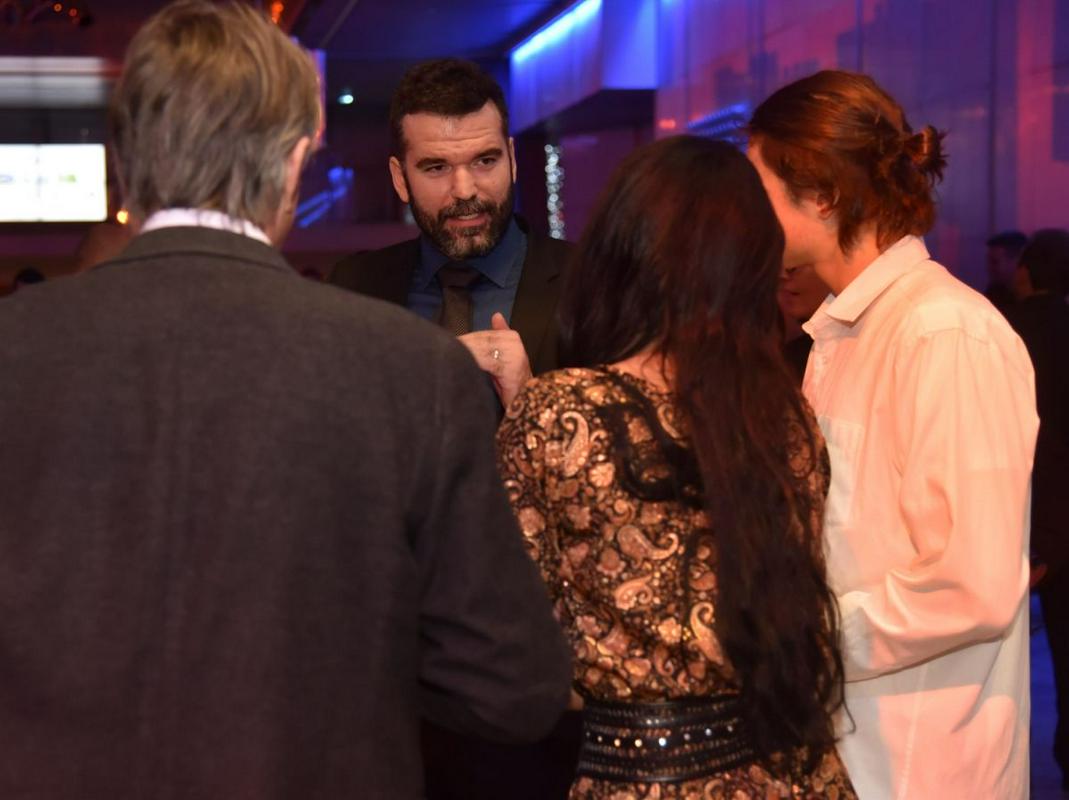
How much of your success is mental?
“My coach always used to say that success is 100 percent mental. However, it’s your confidence that makes all the difference. Increased confidence boosts your success. Performing well in training was a major confidence-booster for me. It took all the pressure off my shoulders, and I was able to perform well in competition. Knowing that I was in great shape made all the difference, and that’s why I was able to perform well,” said Alenka Bikar, a former world-class sprinter, who was having a chat with Olympic sharpshooter Rajmond Debevec when we caught up with her.
“Yeah, this is what I call the winning mindset. It’s something you can’t teach. Most people don’t have it, and no amount of training or preparation can make up for it. In order to become a winner, you need to have a winning mindset. That’s what makes all the difference,” said the three-time Olympic medallist.
A lot depends on the coach
Marjan Fabjan, the coach of Olympic judo medalists Ana Velenšek and Tina Trstenjak, also had a thing or two to say about what it takes to become a champ. The Lopata-based coach helped Velenšek and Trstenjak win gold and bronze respectively at the 2016 Olympics in Rio. “It’s all mental. Everything starts in your head. Being focused and finding the right moment – that’s also important,” said Fabjan, who knows when his athletes are on the verge of folding mentally. “I notice these things right away. They go to a doctor, they take sick leaves, they say they’re too busy with school etc. These are the first signs that something’s amiss. I sit down and talk to them because there are many things they don’t understand yet. Some of them listen to me, some of them don’t. About 80 percent of them don’t understand what I’m trying to tell them. However, the remaining 20 percent do, and these athletes will one day become champs,” added Fabjan.
Future champions have to start training at a very early age. However, early childhood educators maintain that young children are often not yet ready for such challenges. “No, everyone get this bit wrong. You have to teach a child rather than train a child. When children go to school, they study. They don’t work. They study until the age of 12. Apprenticeships start at the age of 14 or 15 – that’s when they receive hands-on training. It’s the same with sports. We can’t make a child do sports, and we can’t expect him or her to perform at the highest level. In order to achieve good results, we need to guide him or her. A child must always remain a winner, and the coach has to know how to build up his young athletes. The coach has to pick his battles and make sure that the child always believes that he or she is a winner,” said Fabjan.
You train while your classmates party
Peter Mankoč told us what sacrifices he had to make to become a top swimmer: “Vomiting after a gruelling workout is the easiest part. The hardest part is what comes after. Your life – your diet, your sleeping patterns, your social life, your spare time – revolves around your sport. You can’t go on vacation when you want to, you go when you’re allowed to. There’s no such thing as sick leave. After a tournament nobody cares whether you’re sick or injured, they only care about your results.”
“In high school, when your classmates go to parties, you don’t go to parties. After a year, they don’t even bother inviting you to parties because they know you can’t come. They go skiing during their vacations, but you stay at home and you’re expected to train even harder. In high school, every day was the same, and that was the hardest part for me. You get up at 5:50, eat breakfast, go to the swimming pool and train. Then you visit your grandma and eat another breakfast, you go to school and come home from school with two backpacks on, you have about an hour and a half to do your homework, and then you go to the swimming pool again – day in, day out. Doing this day after day – even when you don’t perform well in competition – that’s hard,” said one of the most decorated short course swimmers in the history of the sport.
Giving it your all
“Once athletes reach the highest level, they train twice a day. They’re in top form. But what’s the difference between a champion and a challenger? It’s one’s head. Some call it heart, but it’s really one’s head. A baller scores 30 points in a game, but in the next game he only scores 2 points. Why? Is he in poor form? No, it’s all in his head. He’s not prepared mentally,” said Slavko Kotnik, a former basketball player.
Tina Hacler; translated by D.V.

































































